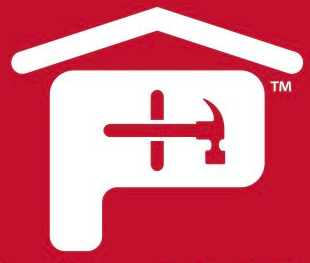Regulations that dictate how residential homes should be built built continually change as housing efficiency standards evolve. Keeping up with these changes is a chore for contractors, as there are multiple governing agencies that produce different standards.
No one system has been designated the industry standard. With continuously changing building codes, it helps to use a continuous insulation (CI) application capable of navigating the trends.
The implementation of ASHRAE 90.1-2004 sparked the inception of the U.S. Green Building Council (USGBC), the group responsible for the LEED certification program. With the validation of LEED certification came a new avenue to reach customers with green building values. It has set the point system for silver, gold, and platinum LEED certification. To obtain any of these ratings, contractors must have “green-friendly” CI to boost the building envelope score.
The International Energy Conservation Code® (IECC) standards focus on reducing energy costs, conservation of natural resources, and cost savings. This code was first implemented in 1998, and is also continuously updated to help minimize the impact of energy usage on the environment.
Atlas Wall CI Solutions
While all these organizations have a common goal of energy efficiency, they don’t fully agree on the means of achieving those goals. However, continuous insulation from Atlas Roofing can help meet ASHRAE 90.1 and IECC standards, while also contributing to LEED certification.
Atlas EnergyShield® PRO and PRO2 exterior wall insulation products also are important contributors to meeting IECC and ASHRAE 90.1 standards. Certified by the Air Barrier Association of America, these CI applications can be applied over concrete, wood, wood stud, steel stud, and vapor barrier membranes to help prevent thermal bridging.
Rboard® Rigid Foam Insulation, with double-sided non-reflective coated glass-mat facers, is another flexible CI option. It is durable, water resistant, and also registers a high R-value. It helps protect the building while construction is underway, and can be applied to concrete, wood, wood stud, steel stud, air and vapor barrier membranes, and glass-mat gypsum.
Atlas Infinish ES and ES2 Interior Wall Insulation products provide a high R-value, contribute to low heat transfer, and improve the complete building envelope. Designed with flexibility in mind, these products work with walls framed with either wood or steel studs. They also provide a water barrier to resist rotting and potential mold growth.
Count On Atlas
The rules and regulations are continuously changing. And while it can be difficult to keep up with the changes, contractors can use CI applications that meet or exceed industry standards. Atlas, Atlas EnergyShield® PRO and PRO2, Rboard® Rigid Foam Insulation, and Infinish ES and ES2 Interior Wall Insulation can be applied and assist with compliance for multiple codes and regulations. For more information, contractors can visit Atlas Wall CI for additional ways on how CI can help.



 Gear!
Gear! PRO LOGIN
PRO LOGIN